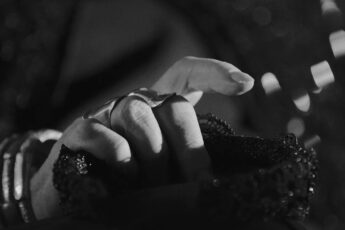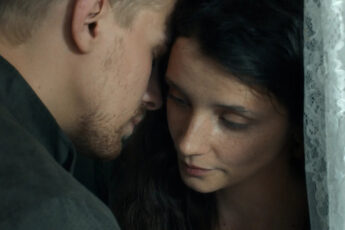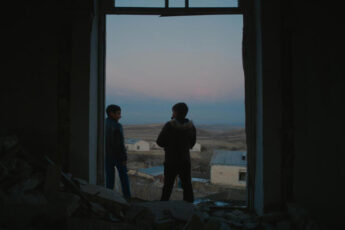
In the early 20th century, the tendency to celebrate the First World War war as a personal, moral, and even aesthetic experience superior and deeper than the “reality” of fin-de-siècle ennui and decadence (the latter-day democracy fatigue), was not uncommon among writers and artists, and even among scientists, sociologists, and political theorists. Max Weber proclaimed in a lecture held in Munich on the 22nd of October 1916 that Germany was fighting for honor and that the war was the realization of Germany’s world-historic destiny, a form of “consecration”. Weber’s view thus also pointed towards a German Sonderweg, in which the superiority of culture legitimized the war and military conflict was recast as a righteous battle for invigorating the grandeur of the culture or nation, an end in itself. A year later, Thomas Mann went even further in applauding the war as an expression of German morality, mystified in a synthesis of power and spirituality:
[…] why did Germany welcome [this war] with such a sense of commitment, when it broke in upon us ? — Because it recognized in the war the bringer of its Third Reich. — What then is its Third Reich? — It is the synthesis of power and spirituality.
Later, in his Betrachtungen eines Unpolitischen of 1918, Thomas Mann would redefine the war as a cultural struggle between Western (mostly French and British) “civilization”, with its guiding concepts of democracy, human rights, cosmopolitanism, parliament, republicanism — and German “culture”, whose constituents, the “most inward people,” the “people of metaphysics… of music”, could never abase themselves to such mundane endeavors as parliamentary democracy. In the whole book, spanning over 600 pages, the First World War is never mentioned in the context of a military conflict; and Mann exclaims it is “Goethe, Lichtenberg and maybe E. T. A. Hoffmann or Wackenroder” whose names the German “Geist” demanded warships to be named after. Casualties, if any, were thus to be found only in the realm of ideas in Mann’s “unpolitical” stance. The battlefield of armed and injured bodies was aestheticized into a playground of noble minds.
When on February 24th, 2022, Vladimir Putin announced a “special military operation” in Eastern Ukraine and first explosions were reported in Kyiv, Kharkiv, Odessa, and the Donbas region, citizens all around Europe took to the streets to oppose the war. In Berlin, more than 100,000 people gathered for a peace demonstration on March 13th 2022. A week earlier, 16,000 had gathered at Place de la Bastille in Paris and 5000 protesters were reported to have marched in London. This anti-war sentiment, with the exception of the handful of British volunteers traveling to “the front” (compensation for BREXIT-guilt?), stands in severe contrast to the Augusterlebnis — the jubilation in Germany at the outbreak of World War I. Not a state of euphoria but of shock, then, defined these late days of February and early March in 2022, and the shock was particularly pronounced among those who thought that a mere “never again” was enough to confront the evil in the world.
And yet. While the military conflict has been universally condemned and an armed retaliation directly involving NATO members remains unpopular across Western Europe, the euphoria is less inhibited with regards to the sanctions that have been imposed on the Russian economy, sports, science, and on culture. Here, the rhetoric appears to echo that of Thomas Mann, where a “soft” war is being waged on the basis of identity. For the film industry, this has currently translated into calls for cultural sanctions to be imposed on Russia. In an open letter, the director of the Polish Film Institute Radosław Śmigulski wrote that “any support shown for Russia while its armed forces are occupying the territories of independent Ukraine is support for the criminal activities of the occupier”. And already cultural institutions are acting on the Ukrainian Film Academy’s call to cancel Russian films from being screened at festivals. Tallinn’s Black Nights Film Festival in Estonia and the Vilnius International Film Festival in Lithuania were the first to act. Algirdas Ramaska, the director of Vilnius’ IFF, likening films to bombs, said that “at a time when Russian bombs are killing children, you can’t celebrate Russian cinematic art.” In the West, Glasgow Film Festival has dropped The Execution, by Lado Kvataniya, whose work has been censored in Russia and who last week posted online about his opposition to both the war and Putin. Several Hollywood studios, including Disney, have stopped releases in Russia, and a Netflix spokeswoman announced on March 4th 2022 that the streaming service had halted all future projects in Russia, including acquisitions.
A similar debate currently befalls the publication of Russian scientists. A number of scientists from Ukraine have issued a call to ban Russian researchers from journals. Olesia Vashchuk, the head of Ukraine’s Young Scientists Council at the Ministry of Education and Science, wrote in two letters dated March 1st that “Russian scientists have no moral right to retransmit any messages to the world scientific community.” The letters, to publisher Elsevier and citation database Clarivate, call for Russian journals to be removed from databases and for Russian scientists to be taken off journal editorial boards. Thus far, few journals have followed the call, although Clarivate, which owns the citation database Web of Science, announced on March 11th that it would cease all commercial activity in Russia and close its office there.
While sanctions such as cancelling Russian films from festival programs and academic articles from publications may appear harmless, they should not be taken lightly. In a climate where associating oneself with Russians inspires suspicion, fear and hatred, it is likely that Russian filmmakers and academics will face indirect consequences of the war even when those sanctions are not made official. As a journal having published articles by Russian academics and about Russian films, we will remain committed to dialogue and will continue to engage with Russian filmmakers, films, and academics. We are not hungry for war, which is why we acknowledge that hurting Russian civil society through sanctions or boycotts is a zero-sum game. We obviously condemn Russia’s unprovoked attack on Ukraine. Undoubtedly, the murder and displacement of Ukrainian civilians has to be opposed. However, we also condemn the “civilized” retaliation of unprecedented economic, cultural, and scientific sanctions as they, too, are actions of war. As Raghuram Rajan recently noted, one should not be fooled by the alleged invisibility of economic weapons in particular. While not as immediately visible as bombs, economic sanctions, “if not reversed, [such measures] […] will eventually translate into lower living standards, poorer health and more deaths.”
While it is true that Europe’s war against Russia has thus far not translated into a conflict involving NATO, the sanctions imposed on Russia are a form of Carthaginian peace, a brutal peace intended to crush the losing side. In other words, it is a peace that is no peace at all, but that is recast, much like Thomas Mann saw the First World War, as a battle of ideas rather than bodies. Such a battle of ideas still requires the dehumanization and denigration of the enemy, although in this war the enemy does not wear a uniform but just holds a Russian passport. Like military weapons, scientific, cultural, and economic wars inflict pain indiscriminately, hurting both the culpable and the innocent. In a recent article for the German newspaper Die Zeit, the German author Max Biller wrote, “‘I hate them [the Russians] all! These eternal secret service sadists as well as the supposedly so poor, simple people,’ I said again, ‘they are all brutal, sentimental, and they love their leaders even more than the Germans do!’”.
Against such indiscriminate and xenophobic views, one could recall Ukrainian filmmaker Sergei Loznitsa writing, “what is happening before our eyes right now is awful, but I ask you not to go crazy. We must not judge people by their passports. They can only be judged by their actions. A passport is only due to the chance of birth, while an action is what the human being himself accomplishes.” In this “crazy” battle of ideas, it is as awkward to ban Russian movies (what does Eisenstein have to do with this war?) as it is to organize special programs, film series and thematic focuses on Ukrainian films (what does Kira Muratova have to do with this war?). And yet, the cultural commodification of the war is already in full swing, Ukraine-branding being the latest strategy to attract identity-hungry crowds.
Thomas Mann later changed his war-friendly view. Witnessing widespread political breakdown in the Weimar Republic and the rise of Hitler, Thomas Mann is better remembered today for his outspoken critique, in speeches such as Deutsche Ansprache or Deutsche Hörer!, of the Second World War and of what was later to become the Third Reich as it is remembered today – not Mann’s imagined synthesis of power and spirituality, but Nazi Germany. Here, he called the war out for what it was. Had the allies banned Thomas Mann from publishing after the First World War, perhaps he would have become one of the many whom the “Economic Consequences of the Peace” turned into angry nationalists, and who were scheming for the next “purification” of Germany through a rehabilitation of its expansive imperialism.
***
In this month’s issue, we are publishing Jack Page’s reviews of Tamara Dondurey’s Stand By Me, in which a young woman spirals into depression after a tragic loss, and of Lyubov Arkus’ documentary about iconic actress Alla Demidova, who was active on the fringes of the Soviet film industry. (The articles complete our coverage of the Rotterdam Film Festival.) Melina Tzamtzi reviewed three Armenian shorts that address male vulnerability, but that also reflect the mission of the Golden Apricot film festival to bridge intercultural divides. At the Ji.hlava International Documentary Film Festival, Zoe Aiano saw Fragmentarium, an experimental short from the 80s that defied Romanian censorship. Finally, we are bringing you Anna Doyle’s discussion of Uvala, an experimental short by Davor Konjikušić and Nika Petković that engages with contemporary perversions of remembrance.
We hope you enjoy our reads.
Konstanty Kuzma & Moritz Pfeifer
Editors




Eisenstein was born in Riga and filmed in Odesa, his father was Ukrainian. Are his movies just Russian? Or are we just saying everything Soviet is immediately Russian? Because if you do, you are no different from these Russians who are trying to bring us all into one hot boiling pot. This is the problem – Russian culture has been appropriating other ones for years. I don’t think you need to just ban everything Russian back and worth. But in this time it would be a good thing to finally shed some light on filmmakers in countries that were abused by Russia. Sergiy Loznitsa has made sarcastic comments on Ukrainian spelling of “Odesa” – specifying it has to be written like you did in your lovely article, with two “s”. The Russian spelling. People from Donbas told me how his movies made appear villainous the whole region they grew up in. While Ukrainian artists get bombed by Russia he decided to show his movies in Russian film selection as part of a festival. That’s his choice, but it makes sense that we do not want him as a part of Ukrainian filmmaking group – that’s our decision. Instead of trying to get us, Ukrainians, make peace with our enemy who has no remorse in killing our children, take time to look into Ukrainian art and movies.
Thank you, and for the reference to Keynes’ remarkable and prescient book.